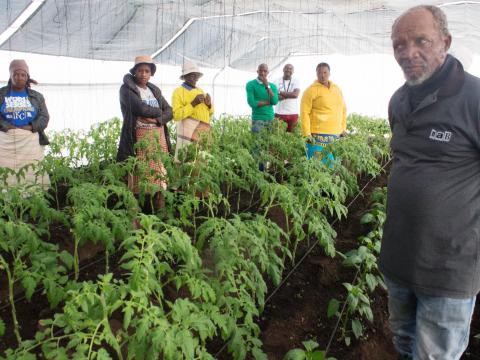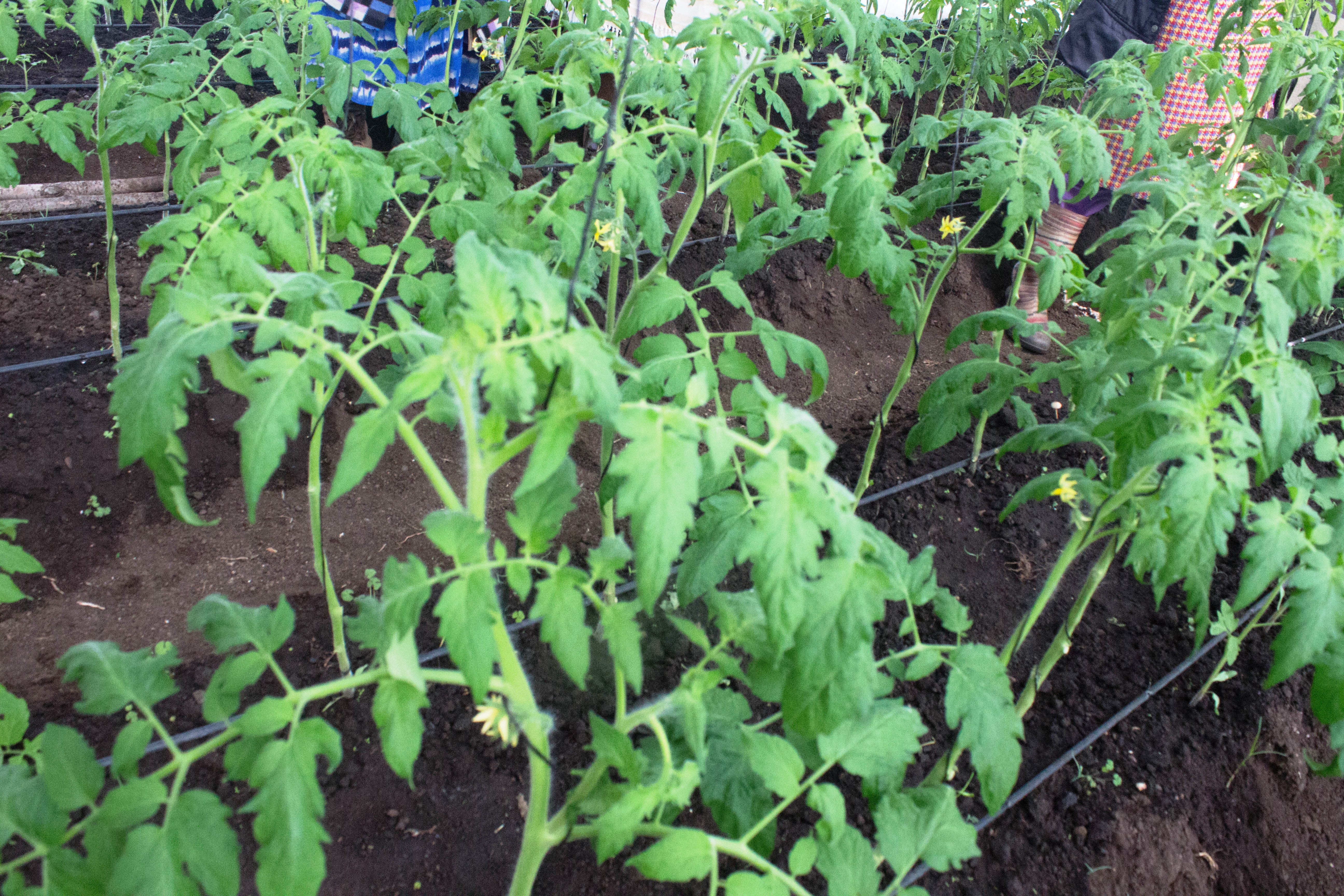Stopping drought's impact: Greenhouses in Lesotho help AIDS orphans

Their dream is simple - to feed their children.
The drought which has consumed the country for the past six months has put more than half a million people, or a quarter of the population, at risk. The price of food and animal feed has more than doubled.
Yet, in Matelile, in southern Lesotho, a farmers’ group has not been deterred.
Instead of sitting and waiting for hand-outs, the Raohang Lesoma Farmers’ Association came together and built a greenhouse, putting into practice what they learnt from training provided by World Vision.
“We are devoting all our energies to the greenhouse because we can already see a future. We see ourselves feeding our families and, most importantly, helping the orphaned and vulnerable children under our care, as well as selling the surplus that we have grown,” says Mr Motlatsi Maile, Chairperson of the Farmers' Association.
One in every 6 children in Lesotho is orphaned and more than half of those children have parents who died from HIV/AIDS. The situation forced many adults, like Motlatsi, to care for children and grandchildren. The Raohang Lesoma Farmers’ Association currently has 25 members who care for more than 100 orphaned and vulnerable children.
“I personally could see danger awaiting us if we did not take action. I could see poverty written all over our faces and those of our children,” Motlatsi says.
The idea started at the very height of the drought in October last year.
“We realised if we did not do anything, we were going to die of hunger…because the drought had affected everyone, asking for food from anyone was embarrassing. We then decided we will all come together to do something to help ourselves," he says.
false
“We are devoting all our energies to the greenhouse because we can already see a future. We see ourselves feeding our families and, most importantly, helping the orphaned and vulnerable children under our care, as well as selling the surplus that we have grown,” says Mr Motlatsi Maile, Chairperson of the Farmers' Association.
One in every 6 children in Lesotho is orphaned and more than half of those children have parents who died from HIV/AIDS. The situation forced many adults, like Motlatsi, to care for children and grandchildren. The Raohang Lesoma Farmers’ Association currently has 25 members who care for more than 100 orphaned and vulnerable children.
“I personally could see danger awaiting us if we did not take action. I could see poverty written all over our faces and those of our children,” Motlatsi says.
The idea started at the very height of the drought in October last year.
“We realised if we did not do anything, we were going to die of hunger…because the drought had affected everyone, asking for food from anyone was embarrassing. We then decided we will all come together to do something to help ourselves," he says.
“We had to work hard to keep the members together and it was not easy because people were hungry and needed food immediately."
“We realised if we did not do anything, we were going to die of hunger…
We then decided we will all come together to do something to help ourselves"
Many members were not sure whether what they were doing could take them anywhere. Even as they worked the land, their hopes were very slim because then rain had become little more than a memory.
The greenhouse was started and completed at the peak of drought in December 2014 and the farmers are currently selling produce from the greenhouse.
Some 18 members of the association went to two training courses. The first explained what a greenhouse is and the second was on how to maintain it.
After that, the Association used close to $10,000 to construct the greenhouse, complete with an irrigation system.
Members have since made a schedule for maintaining the greenhouse.
Each day, two people go to the greenhouse to ensure that produce is harvested for people who want to buy it. They use organic manure which is collected from animal sheds around the village and making it very cheap.
“Some members were beginning to lose hope in what we were doing, but thanks to World Vision, we were motivated by the greenhouse idea and now it seems to be working very well. You can see it is green amidst the extreme heat. We are able to sell some of our produce to other communities and our dream is to produce more. We are selling our produce to big supermarkets,” Motlatsi says.
